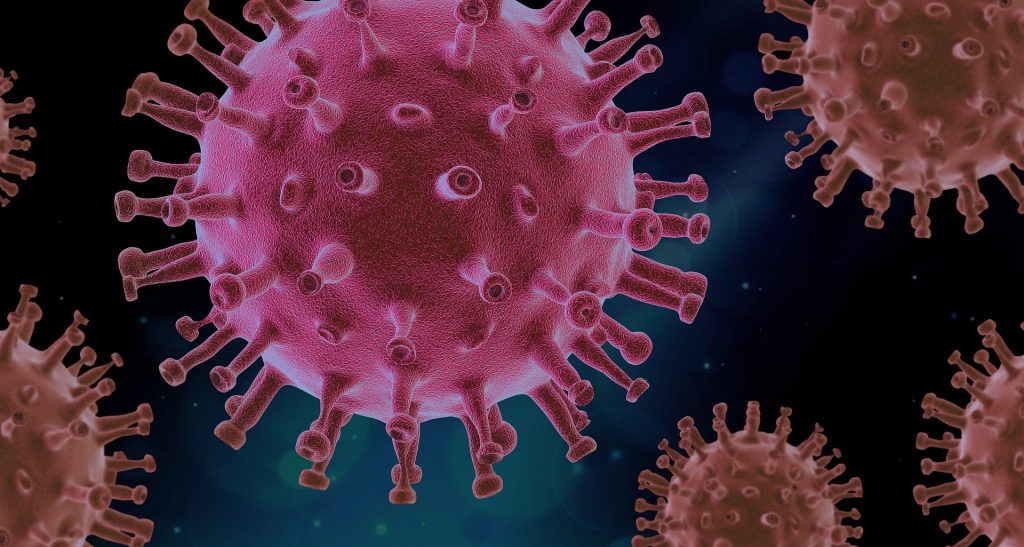Underlying conditions present in most COVID-19 deaths

As of Wednesday, 51 Marion County residents had died of COVID-19.
Besides being members of this community, almost all of them had one other thing in common.
They had other health issues – “underlying conditions” or “co-morbidities,” as the medical community refers to them — that played a significant role in their deaths.
According to the Marion County Health Department, 48 of those locals – or 94 percent – had a condition that made them more vulnerable to coronavirus.
It’s been known for some time that the elderly and those with additional health challenges were at greater risk.
In early April, for example, the Centers for Disease Control and Prevention released a study that found nearly 90 percent of people hospitalized for COVID-19 had at least one underlying condition.
But Marion County’s experience helps underscore the need for greater vigilance by those suffering from underlying health conditions and those who care for them.
At the time of its study, the CDC noted the conditions that landed COVID-19 patients in the hospital most often were obesity, hypertension, chronic lung disease, diabetes and cardiovascular disease.
Today, the CDC has expanded that list of things heighten the risk of “severe” illness to include cancer, chronic kidney disease, COPD, a compromised immune system from an organ transplant and sickle cell disease.
Atop those are a host of conditions that the CDC is less sure about.
The agency says a person “might be at an increased risk” for a “severe” case of COVID-19 if they have moderate to severe asthma, cystic fibrosis, high blood pressure, neurological conditions such as dementia, liver disease, are pregnant or a smoker.
“What we see in Marion is what has been occurring nationwide – heart disease, diabetes and hypertension are the primary underlying health conditions,” said county Health Department spokeswoman Christy Jergens.
The question of identifying who is most at risk is taking on greater significance as Marion County, and the rest of the nation, debate how or whether to reopen schools and lift restrictions on businesses and gatherings amid escalating positive cases.
A subset of that discussion concerns whether a COVID-19 victim dies from the virus or with the virus.
For example, in mid-July Washington state subtracted 65 deaths from its overall coronavirus fatality count because they were later deemed to have died from natural causes or, in nine of them, homicide, suicide or an accident. The state’s health department acknowledged that it had “counted all people who died that tested positive for COVID-19. This method identifies people who had the virus, but fails to tell us whether COVID-19 caused their death.” Colorado in May deducted nearly 300 COVID-19 deaths from its tally because they passed away with the illness but not due to it.
In Marion County, said Jergens, “It can be difficult to determine.”
“We are seeing that COVID-19 affects both pulmonary and cardiovascular systems, for example. So, if someone has a heart attack, underlying heart disease could have been a factor, but increased stress and inflammation placed on the heart and cardiovascular symptoms by COVID-19 could also be a factor,” she said in an email.
“Similarly, with COVID-19, some reports have noticed blood clotting issues that occur when someone has the virus. If someone is COVID-19 positive and has a stroke, it could be difficult to say if that clot that led to the stroke would have happened if the person had not contracted COVID-19.”
Lindsey Bayer, operations director for the state medical examiner’s office in Leesburg, which serves a six-county region including Marion, said the decision-making process can walk a “fine line.”
“There is still so much people, including us, don’t know about this virus,” she said.
The medical examiner’s office is not conducting autopsies of coronavirus patients, unless they die in a prison or jail, for fear of staff contracting the disease. But the agency reviews the decedent’s medical records and signs off on the death certificates, which has the final word on cause of death.
Bayer said the medical examiners look at the victim’s health situation prior to testing positive or being hospitalized.
Essentially, the examiner looks for a “progression of symptoms” attributable to COVID-19, said Bayer. “They have to be sick before we can determine that” is the cause of death.
For example, Bayer noted that a person can lead a normal active life with hypertension and diabetes for many years, but if they suddenly become ill with fever, or respiratory symptoms, or a positive test and are hospitalized with no recovery, the cause of death will generally be listed as COVID-19 pneumonia and their underlying conditions identified as contributing factors.
On the other hand, someone who has been in their usual state of health and has a history of heart disease (or some other condition) and who goes to the emergency room with chest pain and dies, a COVID-19 positive test will not be included on the death certificate.
In a few cases, Bayer said, the outcome was “complications” of COVID-19, which signals the person was in poor health and the virus exacerbated the problem, thus shortening his or her life. On a few other occasions, the attending physician at the hospital has declared coronavirus the cause only to be later overruled by the medical examiner, who identified an underlying cause. Then, in some instances, there is no signal at all to a COVID-19 death. “We do get a few where the person had no underlying conditions because they weren’t aware of it, their families weren’t aware of it and we weren’t aware of it,” she said.
Ultimately, however, the bottom line is that underlying health issues are severely problematic.
Bayer noted that Marion County’s ratio of fatal coronavirus victims with underlying conditions aligns with in other counties who die aligns with that from Marion County, she said.





